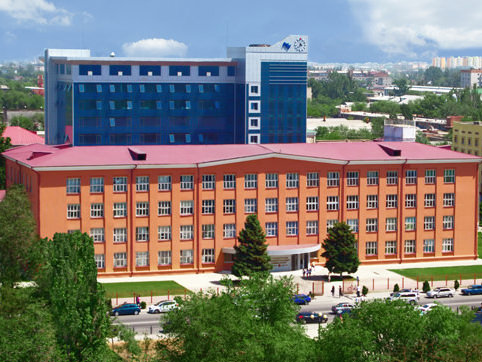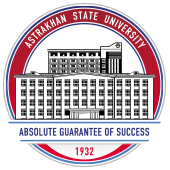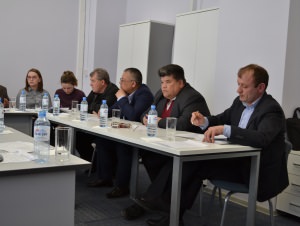Discussion of Migration Issues
 15.04.2016
15.04.2016
The roundtable “Migration Processes in Eurasia & Caspian Littoral Region: Major Tendencies, Risks, and Long-Term Consequences” has taken place at Astrakhan State University. It has been arranged by the Center of Eurasian Political Research operating at ASU.
Mr. Andrey Syzranov, Director of the Center, has opened the meeting by presenting the main themes to discuss. He pointed out that present-day migration is definitely a crucial issue for world processes in various spheres – from ethnic and cultural issues to social and economic ones.
Professor Bruce Leimsidor from the Ca’ Foscari University of Venice in Italy has been the main speaker. His report concerned present-day international migration and the current situation related to this phenomenon; it was followed by a discussion of migration issues in Eurasia in general and in Russia in particular. Prof. Leimsidor pointed out that the migration issue is of ethnic, not of religious character in Russia, unlike in the EU. The distinguished Italian guest also remarked that various mechanisms were being developed in Russia throughout centuries to form a special ethnic cultural tradition of Christians and Muslims living together, so the migration issue is not so acute in Russia as in the EU.
Mr. Vladislav Vinogradov, Chief of the Internal Policy Department of the Administration of Astrakhan Region’s Governor, has pointed out that it is essential for the regional community and authorities to decide what Astrakhan Region is – a Russian outpost at the Caspian Sea or an open site for various nations to interact – and then to determine its further development.
Dr. Vadim Monin from the Law Department of ASU has remarked that large migration flows have been formed in Astrakhan Region over the last years. Grounding on that data, recommendations for the regional authorities to provide the right conditions for migrants’ comfortable work and integration have been developed.
Prof. Lyudmila Baeva, Dean of Astrakhan State University’s Department of Social Communications, has emphasized importance of traditional Russian values that help resolve migration problems in our country, as Russia has always been a truly multiethnic state, where hundreds of ethnic communities get on well with each other, despite their cultural differences.
Dr. Eldar Idrisov from the Astrakhan Branch of the Russian Presidential Academy of National Economy and Public Administration has concerned the issue of educational migration. He suggested conducting a special research by applying qualitative and quantitative methods to assess migration processes.
Mr. Bakhodir Aminov, Chairperson of Astrakhan Region’s public organization of Uzbek culture, has remarked that most Uzbeks adapt in our Region quite well; yet, most of them prefer to remain migrant workers.
As for Mr. Dzhuma Vokhidov, Chairperson of Astrakhan Region’s public organization of Tajik culture, he has pointed out that it is essential to provide support for migrants to master the Russian language, as well as to arrange educational events to integrate them into the Russian culture, which is unfamiliar for them.
Mr. Khadzhimurad Gelaliev, a postgraduate student of the Astrakhan Branch of the Russian Presidential Academy of National Economy and Public Administration, has remarked that the Russian Federation is good at neutralizing interethnic conflicts. This is because Russian citizens are used to tackling any problem together, despite their religious and cultural differences, thus being a truly multiethnic and multicultural community.
After summing up the outcomes of the current roundtable, its participants have decided to discuss world migration processes at further roundtables to take place soon.
Russian original information and photo source: the Center of Eurasian Political Research



.jpg)
